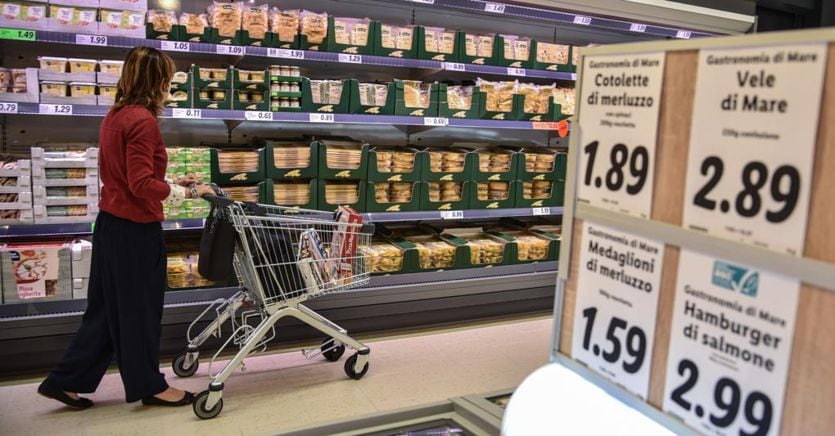The outlines are increasingly those of a national emergency that risks hitting the processing industry. Companies, especially SMEs, are no longer able to withstand the impact of double-digit increases in energy and raw materials and are forced to transfer them downstream to consumers. A prospect that alarms, among others, the producers of consumer goods packaged in full tug-of-war with the chains of modern distribution in the phase of renegotiation of the 2022 price lists.
The subject of increases in raw materials, according to what appears in the Sole 24 Ore, Saturday afternoon was the focus of an extraordinary meeting in the presence of the entire Board of Directors of Centromarca. The association represents over 200 companies active in Italy with 118 thousand employees who produce almost two thirds of branded packaged consumer goods. «It is a moment of particular complexity due to an unexpected cost explosion and outside the logic of the economy – said Francesco Mutti, president of Centromarca -. The price lists of all raw materials see double-digit increases as well as serious problems in the availability of goods. The producers are in a situation of significant difficulty and do not know how long this situation will last but months have passed since the first alarms. For this, the commitment of all stakeholders, including the Government, is needed to guarantee the correct quality-price ratio of consumer goods ». In other words, the president asks that each component of the supply chain do their part.
Part of the price increases will arrive in the shopping cart
Thus, in a note from Centromarca released on Monday 22nd, it is highlighted how “modern distribution should pay the utmost attention to the negative effects that this extraordinary anomaly of international markets generates on a strategic production system for the country”. In all cases it is assumed that part of the price increases will arrive in the shopping cart. «The other interlocutor is unwilling to condto divide the increases – underlines Mutti, who asks the Government – for an acknowledgment of this emergency situation and targeted interventions to amortize and try to neutralize these increases with the help of the public hand, with the reduction of excise duties and other interventions aimed at absorb the increases “.
From Centromarca it is also noted that large-scale distribution does not want to amortize the price increases, a position that could have many consequences. “A crisis in the Italian consumer goods industry would have heavy repercussions on the upstream and downstream industries, with negative employment repercussions in an already critical context” warns Mutti.
Sutter: “The price increases cannot be sustained by industry alone”
Aldo Sutter, president and CEO of the family business (detergents and household products) defines the consequences of the increases as “devastating”. “This year everything has increased with an average increase of 20% and it is a global problem – explains the CEO -. The price increases cannot be borne only by industry ». The Piedmontese SME has 200 direct workers while the related industries in the area have another 600 employees. Being an SME, once synonymous with flexibility, today puts you at a disadvantage when it comes to negotiating with suppliers. “We need an effort from the entire supply chain to find a way out and save SMEs – warns Sutter, who adds -. SMEs are the backbone of entrepreneurship, they create and give employment in Italy and must be helped to overcome this particular phase because these increases cannot be supported only by industry “. Finally, the CEO recalls, with a certain sense of frustration, that other sectors pass the increases on to consumers. The point is that the manufacturing SMEs for months have been struggling against continuous waves of price increases with their own strength. They are too small and suffer from a lack of bargaining power in dealing with suppliers. A disadvantage that could further weaken them.
